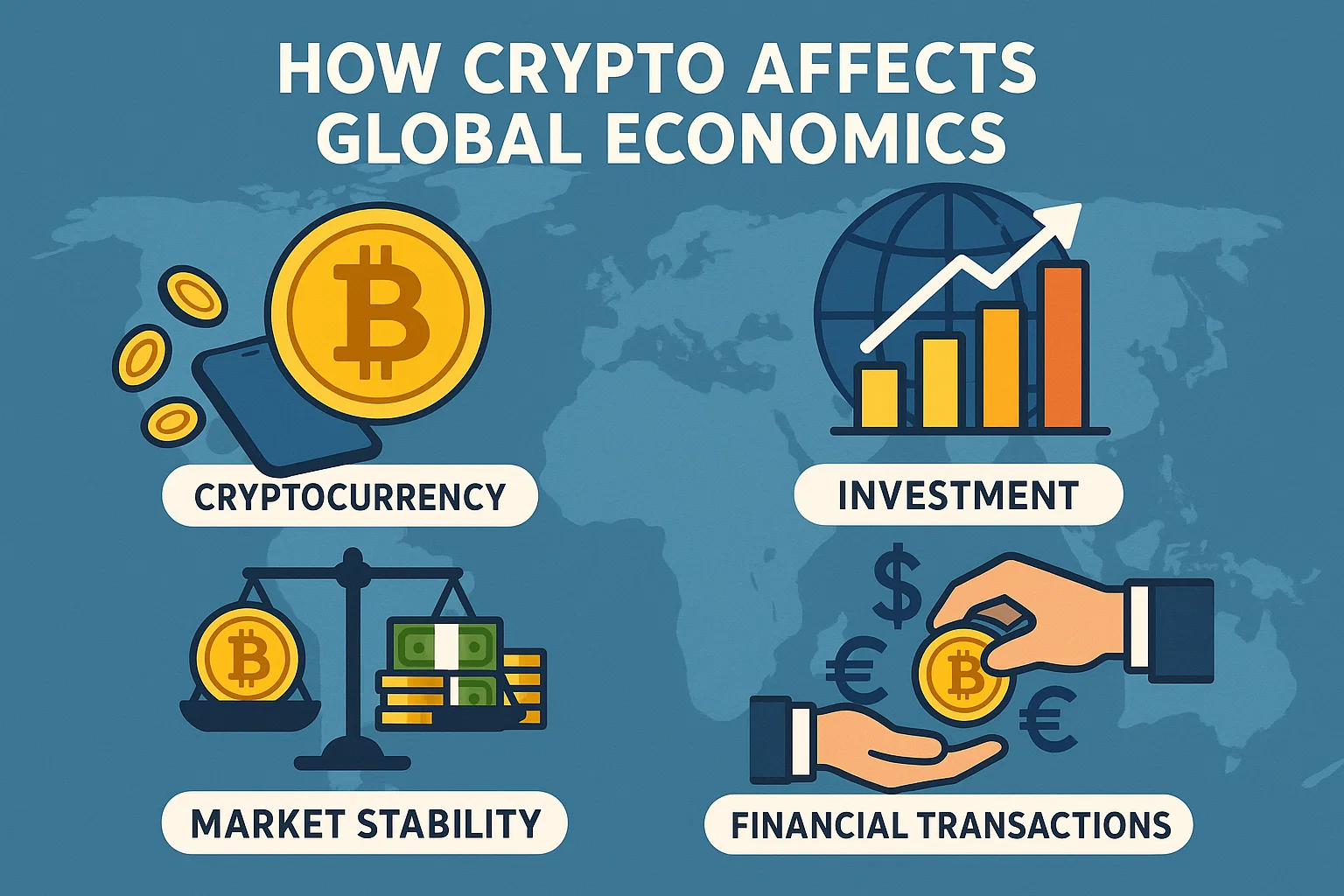Breaking News
Popular News




Enter your email address below and subscribe to our newsletter

Cryptocurrencies are no longer fringe experiments. In 2025, they are rapidly influencing global economics, shaking the pillars of traditional financial systems, altering inflation strategies, and shifting global power dynamics.
Let’s explore how crypto affects global economics in 9 powerful ways — from central banks to emerging markets.
The rise of Bitcoin and Ethereum reduces dependence on traditional monetary systems. This weakens the control central banks have over:
Currency issuance
Interest rates
Inflation policy
With blockchain, international payments are now faster and cheaper:
No intermediaries
Instant settlements
Reduced transaction fees
This is reshaping remittances and international trade finance.
Stablecoins like USDT and USDC are being used as everyday money in countries with:
Hyperinflation (e.g., Venezuela, Argentina)
Unstable banks (e.g., Lebanon)
This reduces trust in fiat currencies, leading to de-dollarization in some cases.
Bitcoin is often considered “digital gold.” In economies battling inflation, crypto is viewed as a hedge, influencing:
Investment patterns
Public sentiment
Government policy on inflation
DeFi platforms allow anyone with a smartphone to:
Lend and borrow
Earn interest
Access global assets
This democratizes finance and boosts local economic activity in regions like Africa and South Asia.
Countries like China, India, and the EU are launching Central Bank Digital Currencies in response to crypto adoption, balancing innovation with control.
CBDCs aim to:
Maintain monetary control
Enable programmable money
Monitor capital flows
Crypto is creating global job markets in:
Web3 development
Content monetization
DAO governance
NFT & gaming economies
Entire economies are forming in virtual metaverses.
As crypto usage spreads, global institutions (IMF, FATF, SEC) are enforcing stricter policies, influencing:
Taxation
AML/KYC standards
Exchange compliance
This also affects global capital flows and investment behavior.
Some nations (e.g., El Salvador) now hold Bitcoin in national reserves, sparking debates over crypto’s future as a global reserve asset.
A: Not completely, but it is challenging fiat dominance in unstable economies and forcing governments to innovate.
A: Both. It enhances efficiency and access, but creates regulatory and monetary challenges.
A: Stablecoins offer price stability and are widely used in trading, payments, and savings in emerging economies.
A: Regulation varies. The US, EU, India, and China have different frameworks. A global regulatory consensus is still forming.
A: Yes. Crypto and blockchain could support a decentralized financial order, reducing reliance on SWIFT and USD dominance.
Understanding how crypto affects global economics is essential in 2025. As adoption grows, expect major shifts in monetary policy, trade, and international cooperation. Stay ahead by following deep-dive insights at bit2050.com — your hub for blockchain and future finance.